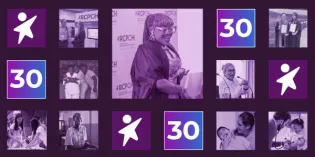Background
RCPCH recognises that it is neither possible nor desirable to mandate that doctors should never use AI for ePortfolio entries. AI can be a useful tool to support aspects of personal and educational development including planning of written reflections, improving clarity and streamlining language.
We will not be asking ePortfolio users to declare use of AI, with the understanding that the principles of ePortfolio such as probity are abided by.
However, GAIT is being used more frequently in academic and professional writing to perform tasks, including reflections and when contributing to MSF (Multi-Source Feedback), such that very similar pieces are being seen within ePortfolios.
Using AI safely, effectively and critically is a skill that all doctors need to develop, this includes appropriate use of AI in recording and reflecting on training.
Governance
Most AI platforms (including the models they are based on) operate by retraining their model based on user data and submissions. On occasion, this can lead to sharing of data that should be confidential and its use in such may breach privacy and contribute to perpetuating bias and harmful stereotypes.
Users of AI should be aware of the risk of using unoriginal or plagiarised content.
Environmental considerations
It is increasingly recognised that generative AI tools have a significant carbon footprint. This varies according to the tools used and is an area of developing knowledge, but it a factor which should be considered.
Reflection
Reflective practice is a key element of training in medical education and is a significant part of revalidation both during training and as a consultant.
Doctors are expected to demonstrate their ability to be a reflective practitioner by developing both written and verbal reflection skills. AI should only be considered as a supplement to writing skills and not as a substitute.
There are no hard and fast rules on how to reflect and we recognise that all doctors may reflect differently (General Medical Council (GMC) ‘The Reflective Practitioner’). However, at its core, reflection must be meaningful and demonstrate insight and learning. Trainers must ensure that doctors in training are able to develop and demonstrate reflective practice and support that development where needed.
Principles to guide the use of AI and reflection in ePortfolio
- All ePortfolio entries with clinical content must relate to real events and cases which the doctor in training has experienced/engaged with. This includes all development log entries, skills logs and assessments along with work-based assessments.
- While AI might help with creating an outline for reflection, using AI to create artificial patient encounters or to take a purely mechanistic ‘cut and paste’ approach to ePortfolio entries risks raising concerns surrounding probity.
- Educational supervisors should explore reflective ePortfolio entries with their supervisee during supervision meetings and should routinely discuss reflection and encourage verbal reflection, an essential skill for trainees.
- Verbal reflection is particularly important for trainees to process, reflect and learn from serious incidents that they have been involved in and in some cases this might be an appropriate alternative to formal written reflection. In these cases, the supervisor should indicate that appropriate reflection has occurred.
- Supervisors and/or ARCP panels should explore ePortfolio entries where there are concerns about the authenticity of the content or the quality of the learning.
- Doctors in training should expect to have some of their ePortfolio entries explored by their educational supervisor and/or the ARCP panel.
Use of AI in MSF and other forms of feedback
Feedback and self-reflection in the MSF (Multi-Source Feedback - see Assessment guide) should not be generated by AI. Whilst the use of spell or grammar check may be appropriate and sometimes happens automatically, feedback is only valuable when authentic and many trainees rely on this for development of professional development plans. The use of AI generated responses may result in feedback which is invalid and could be of detriment to those trainees in need of trusted feedback.
RCPCH expects all doctors to maintain professionalism and integrity in their use of ePortfolio and when contributing to others’ portfolios. This is true whether AI is used or not.
We recognise that this is a field in which there is emerging AI technology, and this guidance will be reviewed in accordance with developments and evolving GMC policy.







